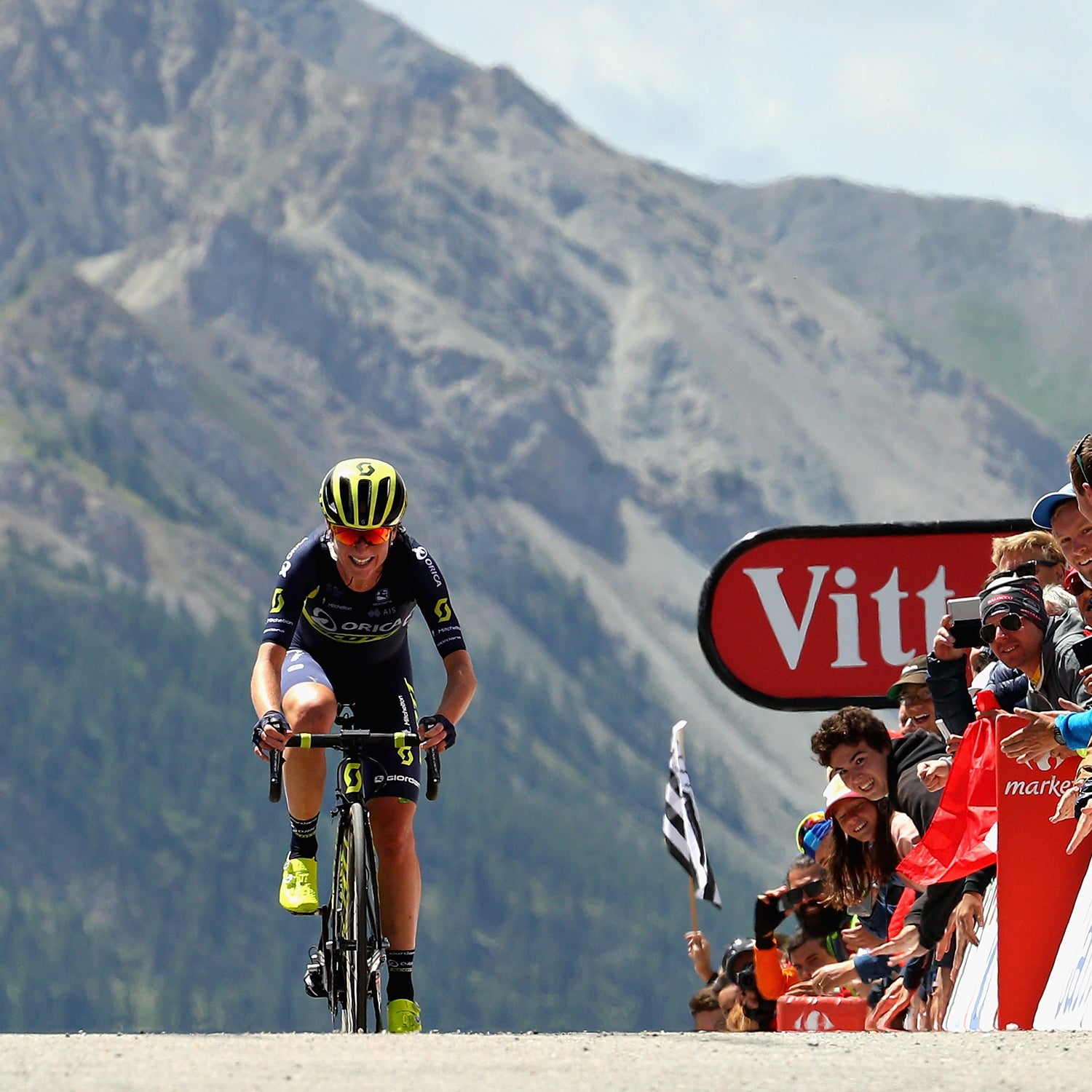I first realized I could be a great professional rider when, at age 18, I won bronze at the 2003 Junior World Championships. My coach said I was the strongest cyclist in the race, but that I still had a lot to learn about skills and confidence. I loved the idea that with enough hard work, training, and patience, I could rise to the upper echelons of my sport. But what I didnÔÇÖt realize then was how many challenges IÔÇÖd face throughout my career because of my gender. ┬á
There is widespread institutional sexism in cycling culture. Women in the sport are groomed to believe that we donÔÇÖt deserve as much media attention, prize money, or sponsorship investment. Take salaries, for example. , cyclingÔÇÖs international governing body, requires that┬áWorldTour male cyclists get paid . There is no such mandate for women. According to recent┬áresearch, .╠ř
I experienced much of this discrimination firsthand. A former team manager once kept me from eating┬áat a training camp because he thought I looked too fat.╠řIÔÇÖve had prize money withheld for violating unwritten team rules, such as┬áwearing the wrong socks with my uniform and competing on my own during a gap in the teamÔÇÖs schedule. IÔÇÖve had teams not pay me at all.╠ř
My first real contract negotiation was an important lesson in self-worth. At the time, I was on a combined top menÔÇÖs and womenÔÇÖs professional team. It was great to have an equal level of support, but the top men were paid 10 to 20 times more than the top women. My┬ámale teammates could make up over $500,000. When the team asked me, ÔÇťWhat do you need to be able to live?ÔÇŁ, I estimated about $1,000 monthly. That┬ábecame my salary. Now I see more clearly that the real question isnÔÇÖt about what I needÔÇöit is what I deserve.
Those paychecks are a crucial part of establishing equity in professional cycling. Many people have told me, ÔÇťOh, youÔÇÖre much better off than the men, theyÔÇÖre just in it for the money.ÔÇŁ These fans purport to celebrate womenÔÇÖs dedication to the spirit┬áof the sport, and they claim that our love of cycling is a better reward than money. But IÔÇÖll tell you what: Love does not pay a living wage. If all we receive in exchange for our pain, dedication, and skill is a bike, some racing clothes, and a handful of Euros each month, are we being treated equally as professional athletes? Or are we being defined as pretty women riding bikes?┬á
Today, after years spent arguing with our national federations and other agencies about remedying these economic, sexist, and sometimes even physical abuses, there is still very little organizational support for women. There is almost no follow up after we lodge formal complaints, about pay or harassment, we have no protections from retaliation, and as a result, almost no sanctions are ever carried out against managers, support staff, or even officials.╠řNo major sport for men or women has been successful without the athletes having seats and votes at the decision-making table.
I want to help make that happen.╠ř
The greatest progress in womenÔÇÖs racing will come when our athletes truly understand their power as a group of talented professionals.
Late last year, I and a small board launched the , the first global labor union for women pro riders. We want to help change the sportÔÇÖs culture, its business model, and its public image. Negotiating a minimum salary is one of our early goals, but that's just one small step forward. When we define what we deserve, the business of the sport has to evolve economically as well.
We hope that the CyclistsÔÇÖ Alliance will change the culture of womenÔÇÖs cycling in partnership with the sportÔÇÖs governing bodies, teams, race organizers, and┬ásponsors. We will help shape what womenÔÇÖs professional cycling looks like competitively on the road and how it is run in the boardrooms, so that the equality of opportunity, athlete treatment, and the minimum wage can progress hand-in-hand. Cycling isnÔÇÖt just about breakaway speeds: itÔÇÖs about telling a authentic story and connecting with fans. We have amazing stories to tell. Now we have a union to represent those voices at the very top levels of our sport.
The greatest progress in womenÔÇÖs racing will come when our athletes understand their power as a united group of talented professionals. The reforms we're┬áseeking are the building blocks of a healthy, global team sport. We can be owners┬áthrough business negotiations and governance votes. We want to make our athletes strong ambassadors for cycling┬áand to help our teams be more successful when it comes to tracking down sponsorship dollars from a diverse group of new investors. So far, we've started creating┬áathlete-development programs that connect experienced professionals as mentors for young riders.╠ř
By backing ethical integrity and anti-doping policies, we can help change the global perception of cycling. We want to increase leadership roles for women in cycling not because of gender-equality rules, but because our education, experience, and professionalism can create lasting change.
Most of all, I would like the world to appreciate┬áthe beauty and power of womenÔÇÖs cycling. We are more than just women who ride bikes. We are professionals and role models, women of strength and conviction, and by joining together, we can change womenÔÇÖs racing today and for generations to come.
was a professional road cyclist for 12 years, and was the 2014 National Road Race Champion of the Netherlands. She is a UCI-certified Team Director and will be a part-time Director for the menÔÇÖs Delta Cycling (Continental) team in 2018.╠řSlappendel founded in 2017 along with former pro Carmen Small, and current pro Gracie Elvin. She currently resides near Rotterdam.


